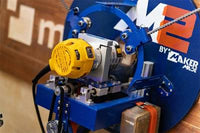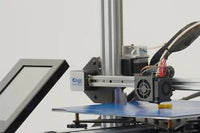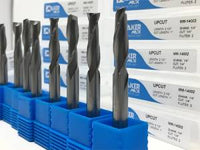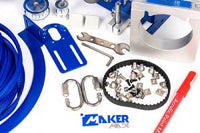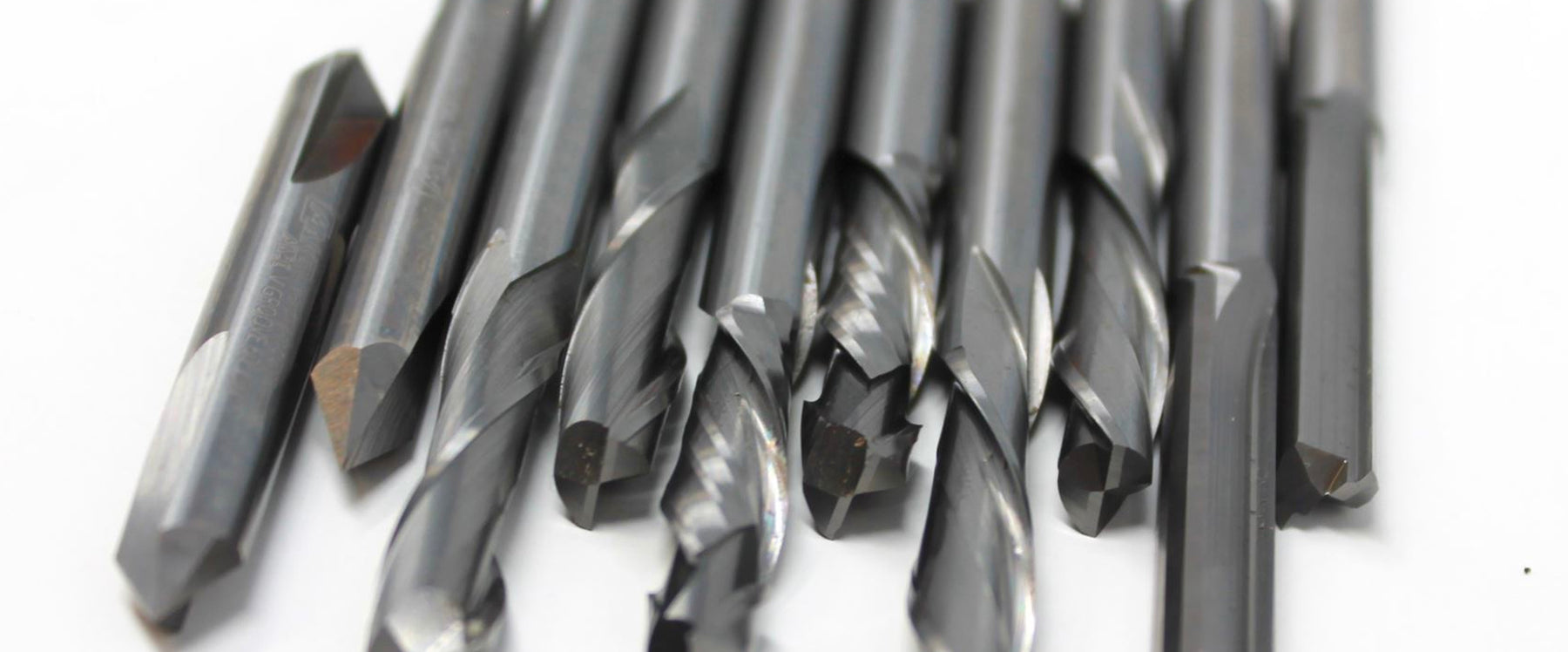
Choosing Router Bits for Your Project
When it comes to successful CNC cutting, choosing the best router bit for your project is similar to choosing the best tires to put on a car. There are situations when summer tread will work great, but you’d never want to get stuck in a blizzard with them on. For a sportscar, you might upgrade to a high-performance tire, but that would be overboard if you’re just hauling lumber in the back of a truck.
The same thing applies to choosing the right router bits- what you’re planning to do with them tells you everything about which ones you’ll need. To make sure you’re choosing the best router bit for your project (and not buying race tires for boulevard cruising), we’ve created a handy, easy-to-follow table of bit types, and a short description of each:
Downcut Spiral Router Bits
Downcut Spiral Bits are best used for thinner materials, or when a high-quality cut finish is required on the top surface of cut parts. The trade-off for this cleaner cut is that waste material (sawdust, etc) is pushed down into the machine bed rather than being lifted out, the way it is with an upcut spiral.
Downward spiral tools often require reduced cutting speeds because the dust is pushed back into the material. The term “downcut” refers to the orientation of the spirals flutes (the grooves) relative to the bit’s rotation direction. It can be thought of as an airplane propeller spinning the opposite way, pushing air forwards.

Upcut Spiral Router Bits
Upcut Spiral Bits pull chips (and your material) up and away from the table (with upcut, the airplane propeller spins the correct direction). They are great at clearing out chips from your cuts to avoid overheating your bits and therefore excel at making deeper cuts. Because of the upcut direction of the flutes, the tradeoff is that these bits have a tendency to splinter the top surface of sheet goods like plywood and melamine coated particle board. You also need to be very sure that your material is securely held down to the table so the bit doesn’t lift it while cutting.

Compression Router Bits
Compression Bits are a combination of up- and downcut bits, which you can see in the complex fluting of the bit. These specialized bits simultaneously pull out chips and debris, while leaving a clean cut surface on both sides of your work material. In this sense, they carry the best of both worlds. Compression bits are great for melamine and projects were both sides of the cut material need a clean finish.
The trade-off of compression bits is in their higher cost. It is therefore recommended that these bits be reserved for the specialty projects they are intended for.

V-Groove Router Bits
V-Groove Bits are a specialty bit named for their unique tip shape and are typically used for decorative cutting purposes. The sharp, pointed channel they produce is ideal for lettering, engraving, sign-making, or similar project types. V-grooves come in various angles to fit the specific look you’re going for in a given cut.

Bullnose Router Bits
For signs and 3D relief work, bullnose tips create smooth, rounded channels for beautifully flowing results.

Common Router Bit Questions:
Q: What material is best for a router bit?
A: There are several options available when it comes to creating router bits. The most common options are steel and carbide. However, while steel bits are cheaper, their advantages versus carbide stop there. A solid carbide bit not only lasts longer than steel, it also functions at higher temperatures for faster cut speed and produces a cleaner cut finish than steel. For these reasons, MakerMade exclusively sells solid carbide router bits.
Q: Do all MakerMade bits work with all CNC routers?
A: Any router that works with our CNC kits are able to use the MakerMade bits, though you may need a collet reducer to fit ¼" router bits into an 1/8” router and vice-versa.


